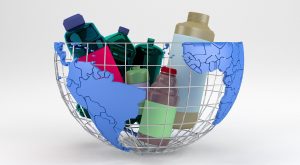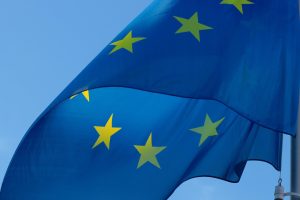European consumers’ awareness of the circular economy and the benefits of recycling materials such as plastic has grown in recent years. However, there is still a need to strengthen the role and confidence of companies through greater support for innovation by means of more favorable legislation. This is one of the conclusions of a study by risk consultancy DNV, which stresses that an increase in social awareness of the importance of giving plastic a new useful life would contribute significantly to the European Union (EU) successfully completing the targets set for plastic in the European Circular Economy Strategy by 2030.
According to Eurostat, barely 35% of the municipal waste generated in Spain is sent for recycling compared to 48% of the European average. A reality that is intertwined with the need to improve waste management in landfills. According to Terracycle, 80% of the products that end up in the landfill could be transformed into useful material, but today this percentage does not even reach 50%. To increase it, one of the ways is to raise social awareness, but as the aforementioned report stresses, one in three citizens still does not know what the circular economy really consists of. And that is one of the main obstacles to increasing recycling rates.
One third of citizens don’t know what circular economy is, hindering recycling growth
Young people: the most committed to recycling
However, there are large social differences. Among younger consumers, around 53% are not only aware of the importance of recycling, but say they actively participate in promoting it in their daily lives. At the other extreme, among people aged 50 and over, only a third say they do so. To improve social awareness, the majority of consumers believe that companies need to communicate more and better to society about the benefits of recycling and how they implement it in their strategies to reduce their carbon footprint.
Overall, 48% of people in Spain say that they do not buy any product that incorporates any recycled packaging material, mainly in the food sector, while 51% say that the ecological footprint is a decisive factor when choosing the products in their shopping basket. Only price is more important to consumers when choosing a product.
Other interesting articles: What will the European Circular Economy strategy mean for rPET packaging?
The study also asks citizens specifically about the circularity of plastics, and the majority indicate that they would prefer to contribute to the promotion of recycled and sustainable plastics as alternatives to single-use plastics. The consultant’s experts conclude that this represents an opportunity for both companies and the public sector to drive innovation focused on increasing the useful life of plastics, including as a way to increase the popularity of the European circular economy strategy.
Use of recycled plastic preferred by most consumers, second only to price
In this respect, it is worth highlighting the example of companies such as REPETCO, which has been able to develop its own patented, nature-friendly system for multilayer PET/PE food packaging. By means of a unique process, rPET pellets and rPET are generated that can be used again in the food industry with multilayer PET/PE trays and sheet packaging; in bottles for soft drinks or detergents; and in fibers for the textile and automotive industry.
Europe and plastic recycling
The Circular Economy is one of the great challenges that the EU has set for the coming years. Among its main challenges is that, by 2030, plastic recycling on the continent will be a profitable industry, making all plastic packaging on the market 100% recyclable. In addition, by 2025, the aim is to recycle 65% of plastic packaging and to include 25% rPET in bottles.
According to RREUSE data, companies that are committed to plastic recycling generate between 40 and 100 jobs for every 1,000 tons of material collected and recovered for reuse activities.
Other interesting articles: The social value of recycling in the European Circular Economy Strategy







